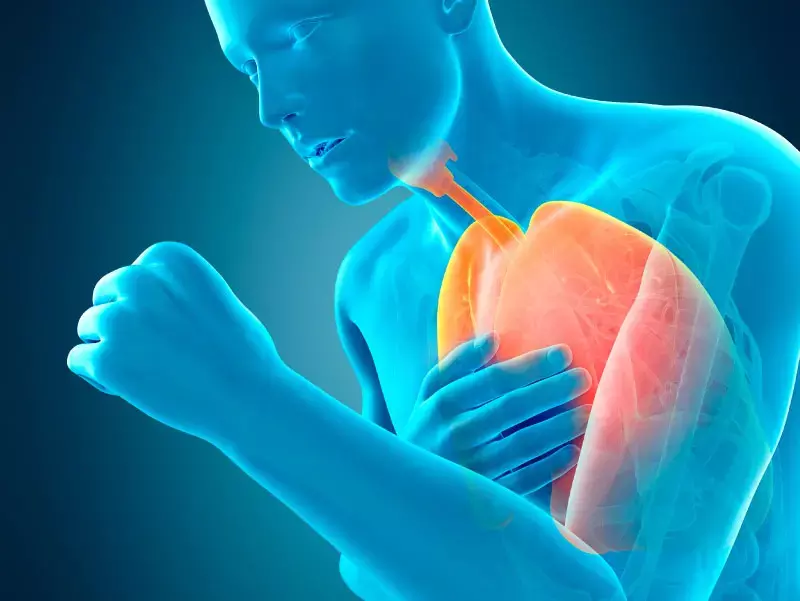- Home
- Medical news & Guidelines
- Anesthesiology
- Cardiology and CTVS
- Critical Care
- Dentistry
- Dermatology
- Diabetes and Endocrinology
- ENT
- Gastroenterology
- Medicine
- Nephrology
- Neurology
- Obstretics-Gynaecology
- Oncology
- Ophthalmology
- Orthopaedics
- Pediatrics-Neonatology
- Psychiatry
- Pulmonology
- Radiology
- Surgery
- Urology
- Laboratory Medicine
- Diet
- Nursing
- Paramedical
- Physiotherapy
- Health news
- Fact Check
- Bone Health Fact Check
- Brain Health Fact Check
- Cancer Related Fact Check
- Child Care Fact Check
- Dental and oral health fact check
- Diabetes and metabolic health fact check
- Diet and Nutrition Fact Check
- Eye and ENT Care Fact Check
- Fitness fact check
- Gut health fact check
- Heart health fact check
- Kidney health fact check
- Medical education fact check
- Men's health fact check
- Respiratory fact check
- Skin and hair care fact check
- Vaccine and Immunization fact check
- Women's health fact check
- AYUSH
- State News
- Andaman and Nicobar Islands
- Andhra Pradesh
- Arunachal Pradesh
- Assam
- Bihar
- Chandigarh
- Chattisgarh
- Dadra and Nagar Haveli
- Daman and Diu
- Delhi
- Goa
- Gujarat
- Haryana
- Himachal Pradesh
- Jammu & Kashmir
- Jharkhand
- Karnataka
- Kerala
- Ladakh
- Lakshadweep
- Madhya Pradesh
- Maharashtra
- Manipur
- Meghalaya
- Mizoram
- Nagaland
- Odisha
- Puducherry
- Punjab
- Rajasthan
- Sikkim
- Tamil Nadu
- Telangana
- Tripura
- Uttar Pradesh
- Uttrakhand
- West Bengal
- Medical Education
- Industry
Diabetes medicines may reduce COPD exacerbations in Diabetics: Study

Researchers have recently found out that duration-dependent beneficial effects of current metformin, sulfonylurea, and thiazolidinedione use on severe COPD exacerbation was observed in patients with COPD and diabetes.
The study is published in the Journal of Respiratory Research.
Exacerbation of chronic obstructive pulmonary disease (COPD) severely impacts the quality of life and causes high mortality and morbidity. COPD is involved with systemic and pulmonary inflammation, which may be attenuated with antidiabetic agents exerting anti-inflammatory effects. Real-world evidence is scant regarding the effects of antidiabetic agents on COPD exacerbation.
Hence, Meng-Ting Wang and colleagues from the School of Pharmacy, National Defense Medical Center, Taipei, Taiwan conducted this study a disease risk score (DRS)-matched nested case-control study to systemically assess the association between each class of oral hypoglycemic agents (OHAs) and risk of severe COPD exacerbation in a nationwide COPD population co-diagnosed with diabetes mellitus (DM).
A total of 23,875 COPD patients receiving at least one OHA for management of DM were enrolled in the study. Cases of severe exacerbation were defined as those who had the first hospital admission for COPD. Each case was individually matched with four randomly-selected controls by cohort entry date, DRS (the estimated probability of encountering a severe COPD exacerbation), and COPD medication regimens using the incidence density sampling approach. Conditional logistic regressions were performed to estimate odds ratios (OR) of severe COPD exacerbation for each type of OHAs.
The following findings were observed-
a. Current use of metformin versus other OHAs was associated with a 15% (adjusted OR [aOR], 0.85; 95% confidence interval [CI] 0.75–0.95) reduced risk of severe COPD exacerbation, whereas the reduced risk was not observed with other types of antidiabetic agents.
b. When considering the duration of antidiabetic medication therapy, current use of metformin for 91–180 and 181–365 days was associated with a 28% (aOR, 0.72; 95% CI 0.58–0.89) and 37% (aOR, 0.63; 95% CI 0.51–0.77) reduced risk of severe COPD exacerbation, respectively.
c. Similarly, 91–180 days of sulfonylureas therapy led to a 28% (aOR, 0.72; 95% CI 0.58–0.90) lower risk, and longer treatments consistently yielded 24–30% lower risks.
d. Current use of thiazolidinediones for more than 181 days yielded an approximately 40% decreased risk.
Therefore, the authors concluded that "there is a duration-dependent beneficial effect of the current use of metformin, sulfonylureas, and TZDs, respectively, on severe COPD exacerbation."
Dr. Nandita Mohan is a practicing pediatric dentist with more than 5 years of clinical work experience. Along with this, she is equally interested in keeping herself up to date about the latest developments in the field of medicine and dentistry which is the driving force for her to be in association with Medical Dialogues. She also has her name attached with many publications; both national and international. She has pursued her BDS from Rajiv Gandhi University of Health Sciences, Bangalore and later went to enter her dream specialty (MDS) in the Department of Pedodontics and Preventive Dentistry from Pt. B.D. Sharma University of Health Sciences. Through all the years of experience, her core interest in learning something new has never stopped. She can be contacted at editorial@medicaldialogues.in. Contact no. 011-43720751
Dr Kamal Kant Kohli-MBBS, DTCD- a chest specialist with more than 30 years of practice and a flair for writing clinical articles, Dr Kamal Kant Kohli joined Medical Dialogues as a Chief Editor of Medical News. Besides writing articles, as an editor, he proofreads and verifies all the medical content published on Medical Dialogues including those coming from journals, studies,medical conferences,guidelines etc. Email: drkohli@medicaldialogues.in. Contact no. 011-43720751


